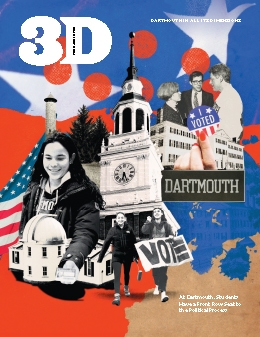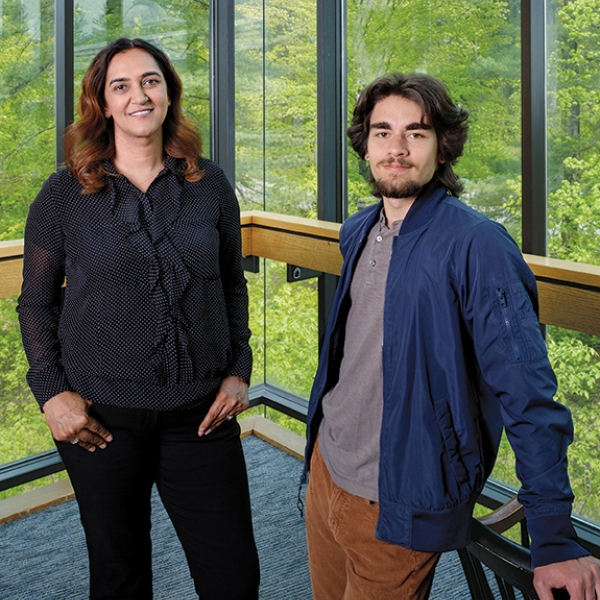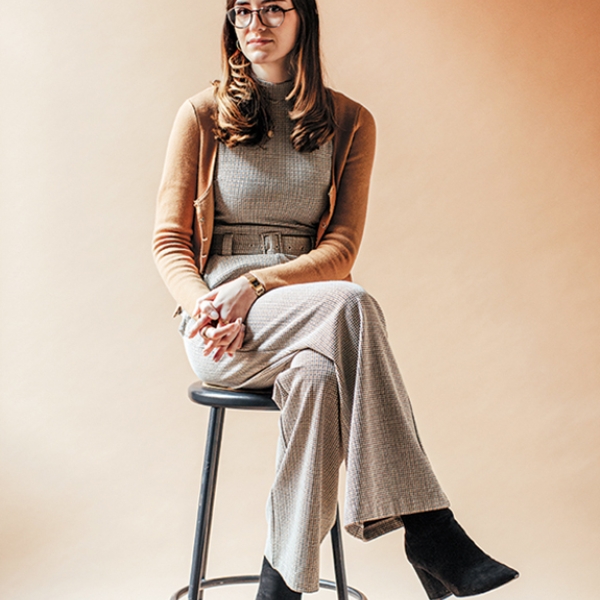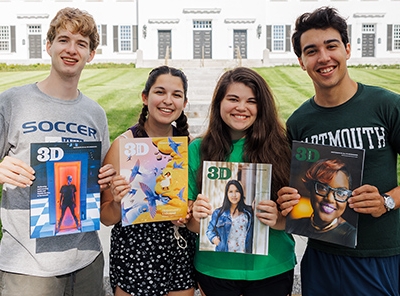Telling Indigenous Stories Through Literary and Legal Lenses

Neena Shell ’26
she/her/hers
Hometown
Wooster, Ohio
Majors
Native American and Indigenous Studies & Women’s, Gender, and Sexuality Studies
Bruce Duthu ’80
he/him/his
Position
Samson A. Occom Professor and Chair, Native American and Indigenous Studies
Let’s talk about the Native American Law and Literature course.
Professor Duthu
The whole premise of the course is an argument that there is value in putting these two very different forms of narrative—literary and legal—into conversation with one another. Although I’m trained as a lawyer, not as a literary scholar, I grew up in a culture where storytelling was a principal way by which our cultural values were transmitted. I grew up surrounded by storytellers and was fascinated by how much knowledge they were transmitting. I saw legal cases as stories.
Neena
I love reading and writing, and the class was a space where I got to do that. We were reading novels and books by Indigenous authors whom I’d never gotten to read before. I did not have the academic space to do that before Dartmouth. What I learned is that Indigenous scholars aren’t just legal scholars or literary scholars or historical scholars. We have to be all of those. Having the space to really delve into those connections across law and literature was my favorite part of the course.
Tell us about your research interests and current projects.
Neena
Last winter, I received funding from the Native American and Indigenous Studies department to pursue research focused on the impact of Indigenous women in the Midwest. They influenced trade, politics, migration, movement, and kinship systems within the Midwest pre-contact all the way up until now. A lot of Native people that live in the Midwest, especially where I’m from in Ohio, are not living in our ancestral homelands. Learning more about the stories of these Indigenous women from hundreds of years ago was inspiring for me because I want to know, even in the smallest way, how I can contribute to that legacy.
Professor Duthu
On my end, I have a book project in the making. It’s going to be a contemporary history of my tribal community told as a memoir.
Neena
Even though our research interests aren’t exactly the same, I think the foundation of our interests are very aligned. We both want to write down the stories and experiences of our home communities.
Neena, how has your Dartmouth experience shaped your future goals?
Neena
Being here at Dartmouth is not something I expected to happen for me. I want to ensure that my education is not just for me but for everyone within my community. It’s a great motivator to remember that you’re not doing this only for yourself; you’re doing this for your family, your ancestors going back seven generations, and your descendants going forward seven generations.
Professor Duthu
Working with students like Neena is a real gift because it’s simply a matter of faculty supporting a vision that the student has crafted. The size of Dartmouth lends itself to what former President Jim Wright referred to as a “community of scale.” We are big enough to have lots of opportunities for students, and yet intimate enough for students to get to know people who can help shape a dream or formulate a vision in line with their values.
Photograph by Don Hamerman, pictured in front of the Native American House, a cultural center and one of Dartmouth's Living Learning Communities
"We are big enough to have lots of opportunities for students, and yet intimate enough for students to get to know people who can help shape a dream or formulate a vision in line with their values."
Bruce Duthu '80
Samson A. Occom Professor and Chair, Native American and Indigenous Studies
55
Neena Shell '26 is one of 55 Udall scholars chosen nationwide for their commitment to environmental policy, tribal policy, or Indigenous health care and wellbeing



